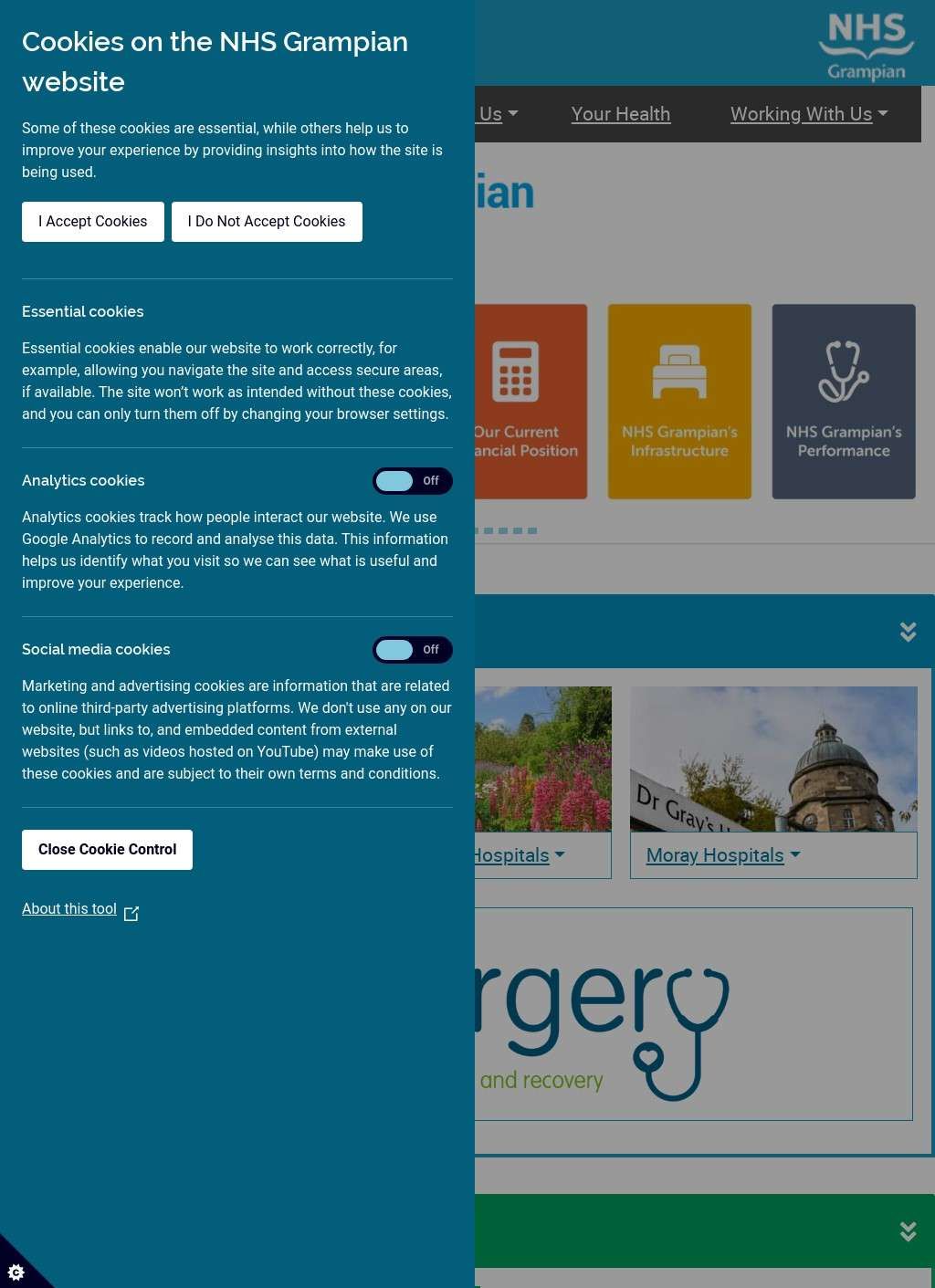NHS Grampian operates as one of Scotland's fourteen regional health boards, established in 2004 through the amalgamation of previous health authorities to create a unified healthcare delivery system. The organization serves over 500,000 residents across a vast geographic area covering Aberdeen, Aberdeenshire, and Moray, which includes the entirety of historic Banffshire. This expansive coverage area spans approximately 3,000 square miles, encompassing everything from major urban centers to remote rural communities and offshore islands.
Acute hospital services center around Aberdeen Royal Infirmary, located on the Foresterhill Health Campus, which serves as the region's primary trauma center and specialist referral hospital. The facility houses advanced medical technology including surgical robots introduced in 2021 for enhanced precision in general surgery and hip replacement procedures. The campus also includes Royal Aberdeen Children's Hospital and Aberdeen Maternity Hospital, providing specialized pediatric and obstetric services for the entire region.
Community hospital network comprises 17 facilities across Grampian, representing the highest concentration of community hospitals among Scottish health boards. These facilities vary significantly in their service offerings, from basic primary care to intermediate rehabilitation services. Within the historic Banffshire area, key community hospitals include Chalmers Hospital in Banff, Seafield Hospital in Buckie, Turner Memorial Hospital in Keith, and Stephen Hospital in Dufftown, each serving their local populations while coordinating with larger acute facilities when specialist care becomes necessary.
Mental health services operate through Royal Cornhill Hospital in Aberdeen and various community-based programs throughout the region. The mental health team coordinates closely with social services and voluntary organizations to provide comprehensive support for individuals experiencing mental health challenges. Recent years have seen expanded community mental health services, recognizing the particular challenges faced by rural populations in accessing mental health support.
Primary care coordination involves extensive collaboration with general practitioners, pharmacies, dental services, and optical practices across the region. The health board works closely with independent contractor services to ensure comprehensive primary care coverage, particularly challenging in rural areas where recruitment and retention of healthcare professionals requires ongoing attention. The organization maintains detailed directories of all primary care services to help residents access appropriate care close to home.
Specialist services include advanced imaging, cancer treatment, cardiac care, and numerous outpatient clinics distributed across the hospital network. The health board has invested significantly in technology, including world-first imaging equipment for cancer detection and artificial intelligence systems for diagnostic support. These technological advances help ensure residents across Grampian can access cutting-edge medical care without necessarily traveling to larger urban centers.
Emergency services coordination encompasses ambulance services, emergency departments, and urgent care facilities throughout the region. The geographic challenges of serving dispersed rural populations require sophisticated logistics and coordination, particularly during adverse weather conditions that can affect transportation routes. The health board maintains detailed emergency response protocols and works closely with other emergency services.
Partnership arrangements with the University of Aberdeen and Robert Gordon University facilitate medical education, research, and workforce development. These partnerships ensure the health board remains at the forefront of medical advances while contributing to the training of future healthcare professionals. Research collaborations have led to innovations in areas including cancer treatment, medical imaging, and healthcare delivery models.
Administrative headquarters are located at Summerfield House in Aberdeen, where senior management teams coordinate strategic planning, financial oversight, and quality assurance programs. The organization operates complex governance structures ensuring clinical quality, patient safety, and efficient resource utilization across all services. Recent challenges have included managing increased demand for services, staff recruitment in rural areas, and integrating new technologies.
Digital health initiatives include online appointment booking, patient portals, and telemedicine services that help overcome geographic barriers to healthcare access. The organization maintains comprehensive websites with detailed information about all services, appointment procedures, and health promotion materials. During the COVID-19 pandemic, digital service delivery expanded significantly and many innovations have been retained to improve ongoing service accessibility.
Patient feedback and complaints procedures are well-established, with dedicated teams handling concerns and working to improve service quality. The organization publishes regular reports on performance, patient satisfaction, and service developments. NHS Grampian Charity operates alongside the health board to provide additional support for patients and families, funding equipment and services that enhance the healthcare experience.
Contact information includes a main telephone number operating 24 hours daily, specialized helplines for different services, and email contacts for non-urgent inquiries. The organization maintains active social media presence and publishes regular updates about service changes, health campaigns, and general healthcare advice. Residents should note that emergency medical situations require immediate contact with emergency services, while routine healthcare needs can be addressed through normal appointment systems with general practitioners or hospital services.
